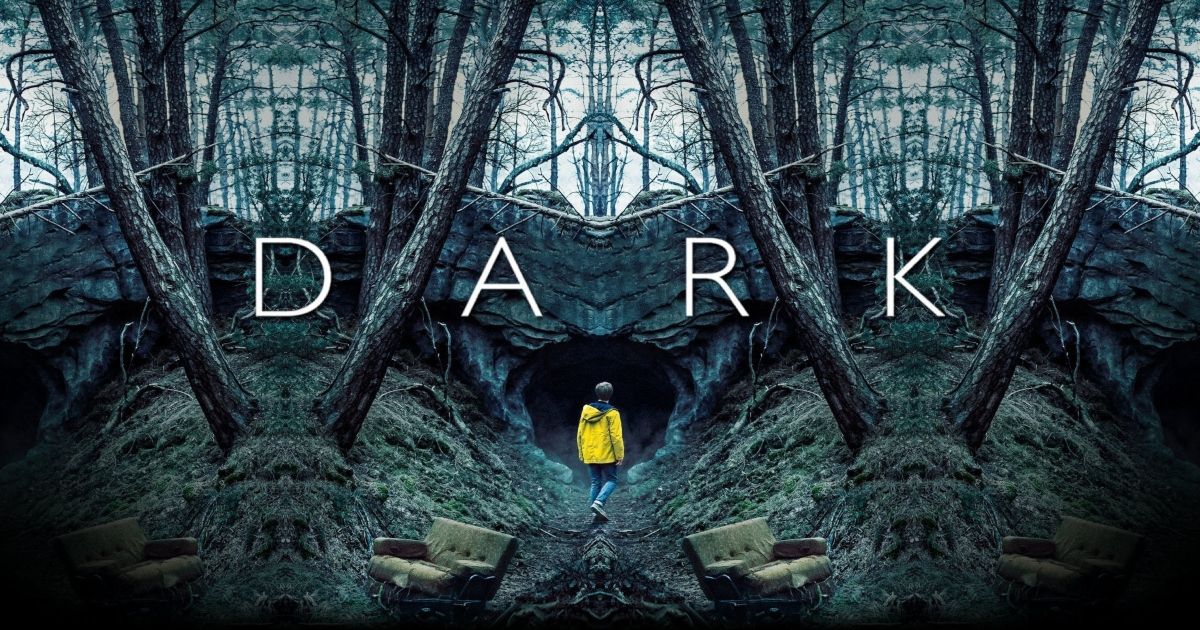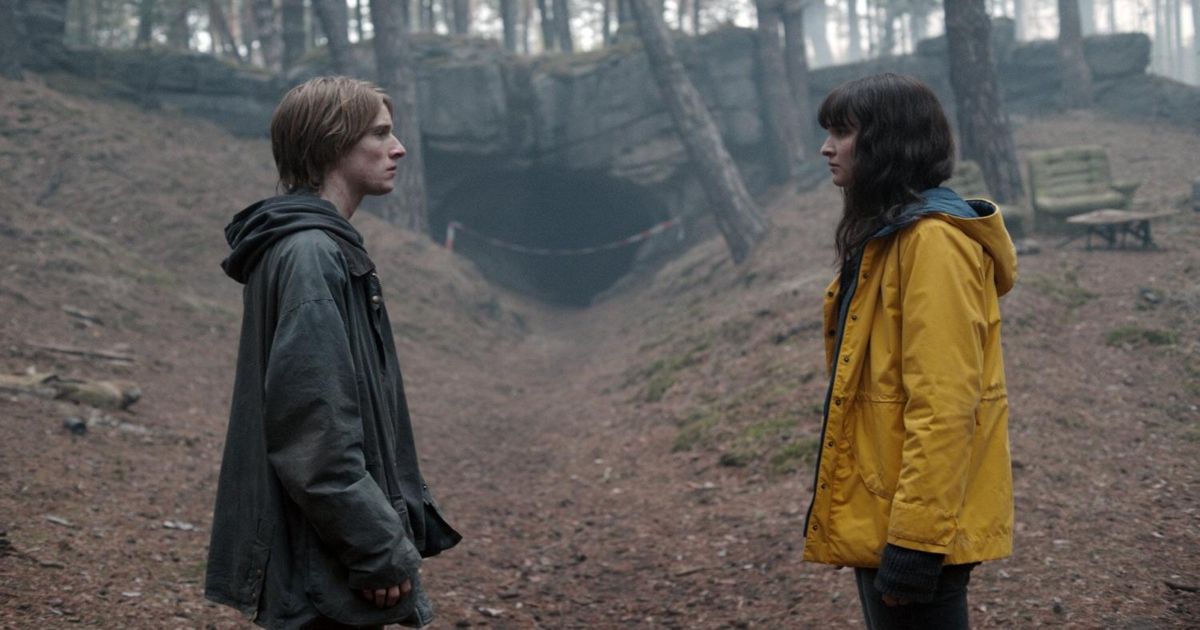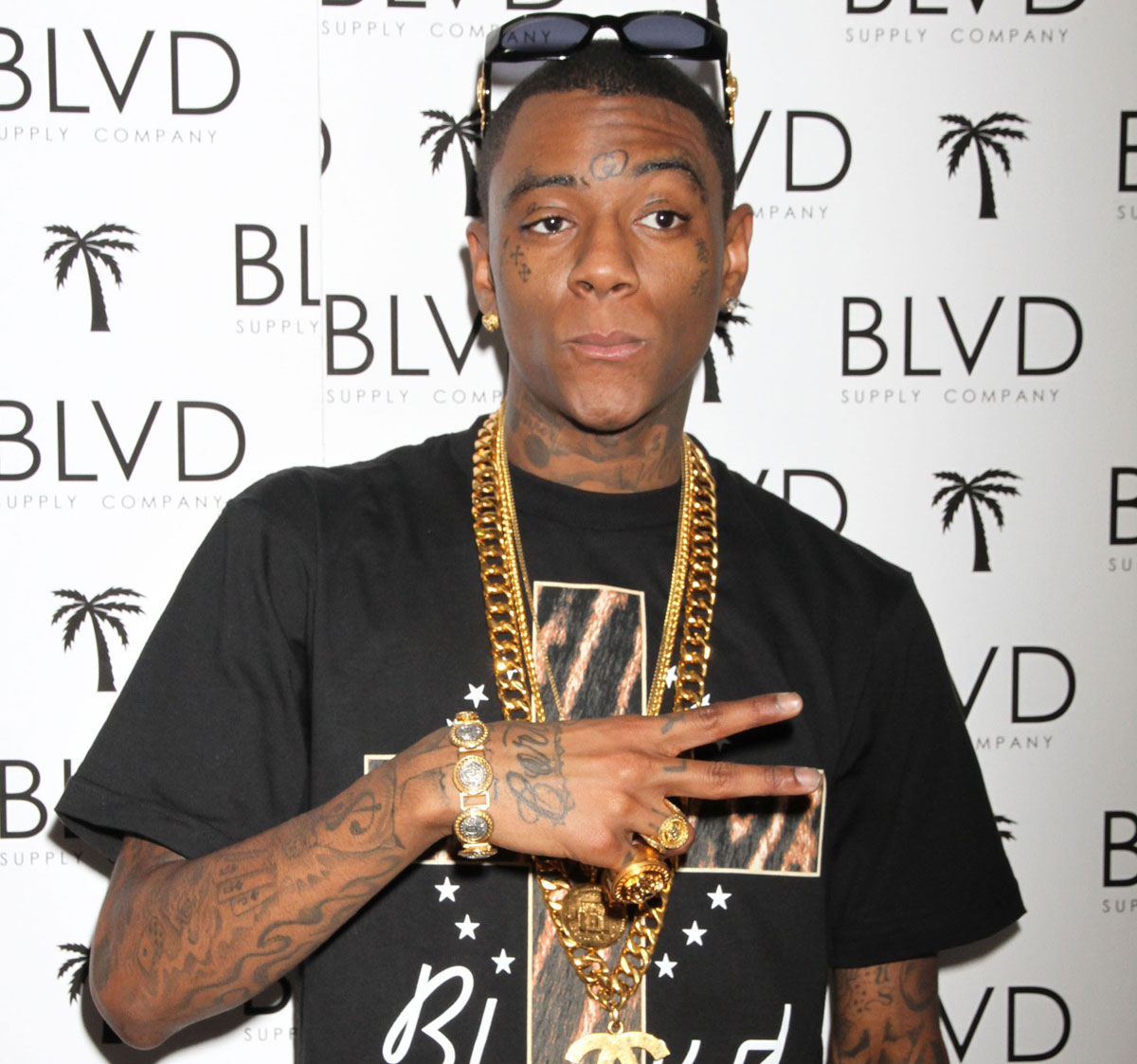#How the German Netflix Show Uses Death and Determinism to Tell a Great Story

Table of Contents
“How the German Netflix Show Uses Death and Determinism to Tell a Great Story”
Dark is a suspenseful and dramatic show, but one that is brimming with philosophical and scientific ideas (free will and determinism, the butterfly effect, Fermi’s paradox, string theory and quantum physics, and so on). In a discussion with Thrillist, co-creator Jantje Friese explains that he read “probably 100 books” on science, philosophy, and spirituality over the course of the series. Friese felt that although the books were different subjects, they were really “talking about the same thing.” This concept can certainly be applied to Dark.
The Philosophy of the Netflix Series Dark
Although Dark is packed with thrills and chills, the Netflix series is mainly character-driven and considers bigger conflicts for humanity than individual melodramas. Mainly, the series examines death and determinism and contemplates how some events (including mortality itself) are outside human control.
If you’re not sure what determinism is, it’s essentially a theory that cause and effect are absolute (nothing exists without a cause), and therefore everything that has and will happen has been determined. Basically, we’re all controlled by external circumstances like genetics, situation, and other people, and thus have no free will; for instance, what causes someone to choose something?
When someone likes something, do they choose to like it, or do they like it because of a litany of external causes? Does someone choose to not like broccoli? Does someone choose to have type one diabetes, or is it hereditary? Does someone choose to like rap more than rock or vice versa, or is it a result of cultural and filial influence, intellectual distinctions, and inherent preferences? Mortality and death is another key feature of Dark, the thing humanity is simultaneously driven by and terrified of. Here is exactly how Dark uses inevitable death and determinism to tell a great tale.
Determinism in Dark
If you think about it, most time travel stories end up considering determinism. When a character is allowed to use time travel to visit the past and alter their own future, there is the issue of whether these changes will help anything or actually set in motion the events you want to manipulate.
For example, in Dark, police officer Ulrich Nielson attempts to prevent the 2019 kidnapping of his brother and son by attempting to murder the kidnapper, Helge Doppler, when Helge is a child in 1953. All this does is scar Helge’s face permanently and add to his sinister, tortured reasons for the kidnapping. The events actually motivate him to work underneath a man named Noah, a priest who believes that controlling time will help humanity end suffering. This emphasizes the question of whether time travel actually manipulates events or is simply a waste of ‘time,’ because the suffering is predetermined. If you could actually change the past or future, what would happen to all the events and lives that occurred before that change took place? If you prevented World War 2, what would happen to the last 80 years? Would reality split?
In parts of Dark, it is also emphasized that “God is time.” At one point, Adam describes time as not an entity but a non-negotiable force, and that “our destiny is nothing but cause and effect.” This deterministic outlook is similar to the concept of the chicken and the egg, so you’re always asking which came first (with time travel, is it the cause or the effect?). Many of the characters are motivated to alter their fate, which is ultimately death, but circumstances reinforce time and time again that time is death and death is inevitable.
Death in Dark
As we talked about above, a lot of time travel is fixated on changing consequences, specifically death. One character who is motivated to change death and time is H.G. Tannhaus, a scientist and clockmaker in Winden. Tannhaus loses his son, Marek, when Marek drives over an unstable bridge and he and his family are killed. Guilty and grief-stricken, Tannhaus works to create a time-traveling device to prevent his son’s death. The mechanism, instead of reversing the events Tannhaus wanted to prevent, instead produces two more parallel worlds and destroys the origin world (perhaps as a result of actually changing time and fate and splitting reality, as previously mentioned).
There is then a conflict between time-travelers about the preservation of the two worlds and all the people in them. It seems like they are all destined to suffer, with their time-travel only reinforcing or causing the suffering they were destined to endure. Nonetheless, they are alive in these split realities. One faction of time-travelers (led by Eve) arranges things to keep the system moving, playing the role of fate and assisting in the clockwork of their world. Another faction of time-travelers (led by Adam) seeks to destroy it all, to end the otherwise endless loop of suffering and time.
Near the conclusion of the show, Jonas and Martha (two characters who grow to become the time-travelers Adam and Eve) eventually prevent Marek from using the bridge in a decision which embraces their mortality. Tannhaus is then never motivated to manipulate time and the alternate worlds are eliminated. Messy, right? Although Dark is complex, it makes some great points about consequences and humanity’s issues with what we can and can’t control.
As a whole, Dark examines the invisible forces which appear to influence the motion of our lives, including how they end. It covers multiple ways in which humanity might fight determinism and death, via a temporal cave, a time box, and Noah’s ark, but also finds peace and satisfaction in not resisting the inevitable. Basically, let’s not mess with time.
Currently, Dark has three seasons available for streaming on Netflix and maintains a high rating with critics.
If you liked the article, do not forget to share it with your friends. Follow us on Google News too, click on the star and choose us from your favorites.
For forums sites go to Forum.BuradaBiliyorum.Com
If you want to read more Like this articles, you can visit our Social Media category.

.jpg)






